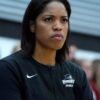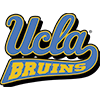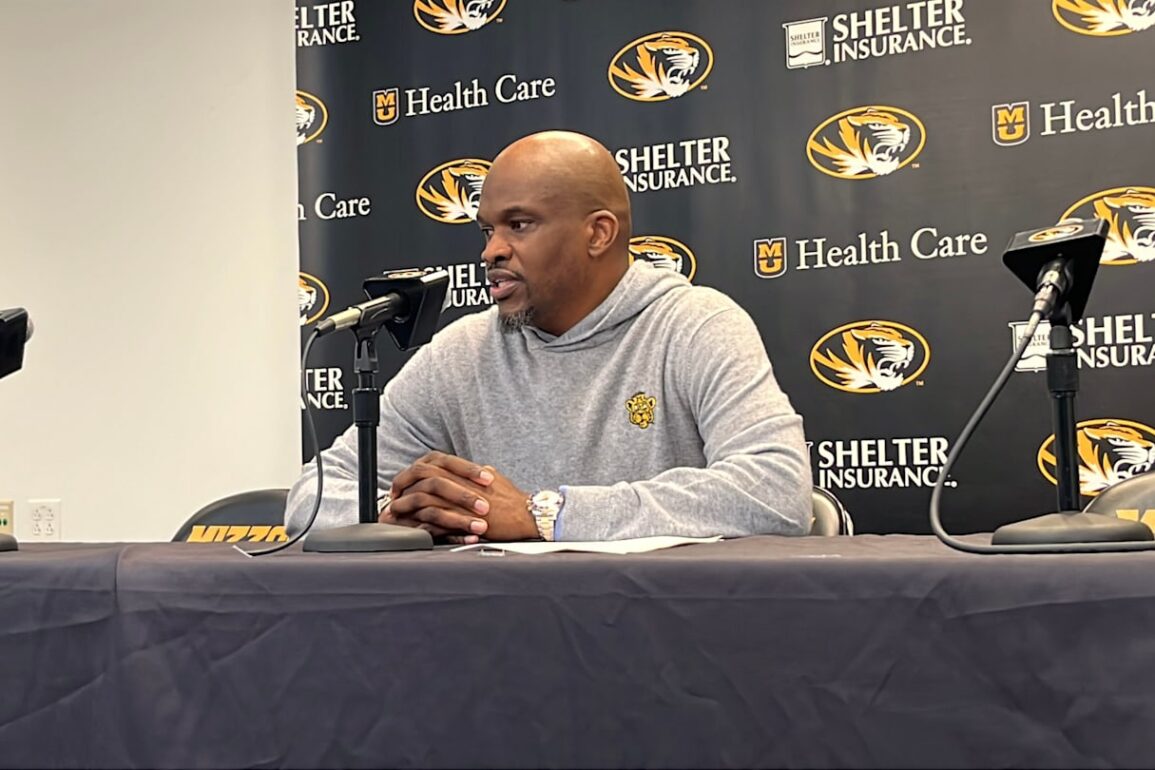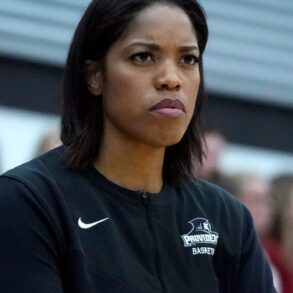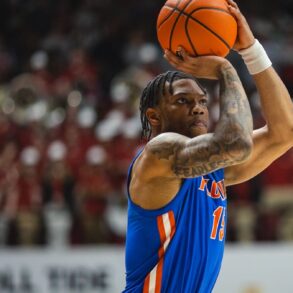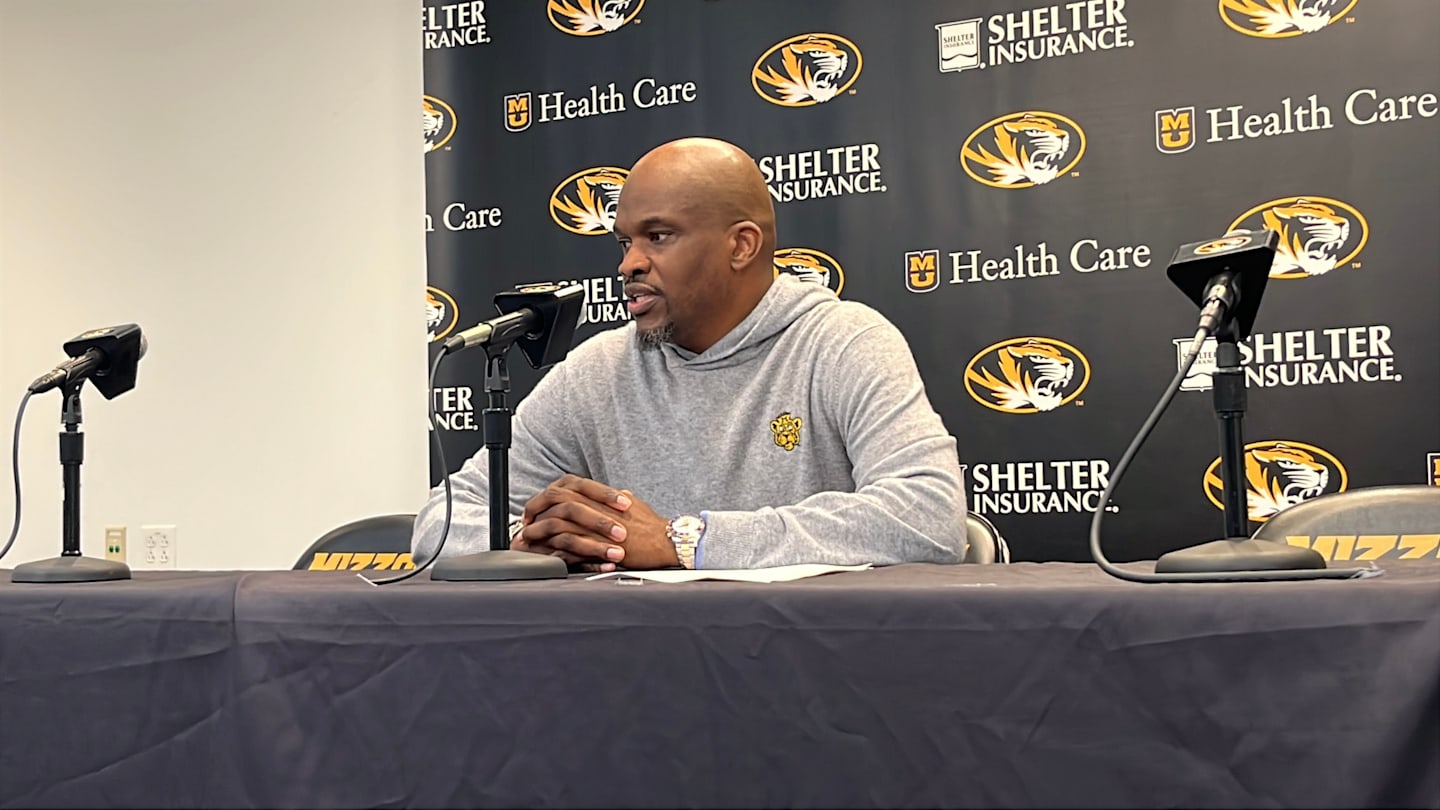
COLUMBIA — Tim Fuller has plenty of familiarity with Mizzou Arena and with people in the Missouri Tigers men’s basketball program. Saturday was full of the former Missouri assistant and interim head coach reuniting with former players of his at a alumni charity basketball game, hosted by Laurence Bowers and DeMarre Carroll.
Afterward, Fuller addressed the media for the first time since being named the program’s first general manager. Here’s a full transcript of what he had to say.
Opening statement:
“It’s great to be back. I honestly feel like I’m back in my own skin. I’ve made a lot of stops since my last stint here at University of Missouri, but coach Gates offered me the opportunity to come back for something that just felt like I was coming home. And obviously being out there with all the former players today, guys that I’ve coached, guys that have built legacies here, is an honor and a privilege to share the gym and share that space with them.
Look forward to serving as general manager here to help coach Gates and his task of building rosters, obviously, and pursuing being successful in the transfer portal. It’s a new day in college basketball, and as coach Gates and I have sat and spent several days, hours, weeks together coming up with this plan, it’s been, like I said, an honor and a privilege.”
On when he first met Gates:
So, ironically enough, coach Gates and I started building a quasi-relationship when he was still an assistant at Florida State. So, as you guys know, basketball is a small ecosystem, so we often cross paths. And I followed him at Cleveland State, watched his success. But when he first took the job at University of Missouri, within that first week, as I’ve done with every head coach that came in after me, I called him to congratulate him and to let him know that if there was anything that I could do to assist them in this transition, that I would be available. And so we just kept the relationship going, from that very first call here, and we would talk periodically, once a month, just about Missouri. It’s basketball. At one point, I took over the program at Overtime Elite, and we had several recruits there that had interest in Missouri, and Missouri had interest in them. So coach and I would talk periodically about them.”
On what his expectations are for the role:
“The role of General Manager is an ever-evolving role. I think that initially, coach has me on certain tasks to understand the landscape, first and foremost, of where we’re heading as college basketball. We obviously just introduced revenue sharing, just some transitions from collectives and the opportunities that our players have to be in a position of understanding their own name, image and likeness and owning their brand.
So, really wearing different hats, is what we discussed. From my marketing days at Nike, how to help them with their branding, how to help our players with their branding. From my Overtime Elite days of building social media and understanding the impact of what a player’s brand can do over the internet, and how they can own that space and protect that space. And then also just my relationships here in this corridor, from a Missouri standpoint, and a lot of the supporters of that program to allow them to have access to our players without infringing on their own personal time. But how do we continue to build those bridges and close those gaps?”
On the difficulty of the current offseason schedule for coaches to manage, how he can help the coaching staff manage it:
‘It’s definitely something that I have been kind of more creating in my own mind, how to help serve the assistant coaches. I believe that we’re in a place where people like myself that have to study the outside ecosystem will be in a position of making sure that we’re set up to properly evaluate and construct the roster once transfer portal comes in postseason and we have to fill gaps and holes.
I think that the assistant coaches main responsibilities, and kind of their day-to-day is about building the proper relationships with the current players, and the retention of those players. Because the first players that you have to recruit when it comes to transfer portal are your own, and making sure that you’re retaining the guys that you want to keep to help continuity and keep building your rosters.
Coach Gates, when he first came to University of Missouri, brought several players from Cleveland State with him. They knew his system, they knew the culture, they knew him, and you saw what that team was able to do, some phenomenal things. Obviously, we all know the injury bug hit, but then coach was able to retain guys that he needed to retain, and we saw what that team was able to do.
So retention for coach Gates and his culture and what he wants to build moving forward, I think, is check mark No. 1, and then evaluating the transfer report on filling in the gaps through elite high school recruiting is check mark No. 2.”
On what made him want to return to Missouri:
“Specifically here at the University of Missouri, it’s the people. I tell recruits all the time when I’m in a position to talk to them that you don’t make decisions off the names on the buildings. You make decisions based off the heartbeats inside those walls in that building. And the people at Missouri, not just staff, but supporters in this community, have embraced me, embraced my children and embraced throughout me not even being here.
And it continued to make me feel special about Missouri, special about my time here. And just coming back sitting on the sidelines with supporters and them, the smile on their face, and welcome back, shaking hands with Mike Alden and his wife and them, the big hugs and smiles and welcome back. It just further confirms and consummates that that’s a shared feeling, that this is a special place, and they feel special about me, as I as I do about them.
On what his first few weeks on the job have consisted of, what he expects his daily tasks to be moving forward:
“So initially, coming in the door, I have been learning from coach Gates and the staff and just evaluating where the areas that they would need me to plug in the gaps. Excellent teachers on the basketball court. Coach Gates is as much as you see him as a head coach, he’s a CEO and manages every personality uniquely and head on.
I’ve wanted to come in and these initial (days), I gave coach 100 day plan, and the first 10% of that 100 Days was to get to know the players and to understand them, and for them to have a chance to get to know me.
The second kind of phase, I would say 30% of that plan, was to get to know the agents that the staff already knew, and to introduce them to agents that I might have relationships with. So we have several buckets that we’re putting these relationships in. One is an agent bucket. One is an elite player high school bucket, and then there’s an international bucket, so that we can all collaborate on the different approaches that we’re going to have.
We have several coaches going to the FIBA events. While they’re at some of the FIBA events, I’ll be meeting with agents. Coach Gates and I will go to NBA, Summer League this summer in Las Vegas, and I’m setting up meetings now so that I can get certain agents on his calendar as well, just so we can start to understand what their expectations are going forward in this new day of college basketball, and also share our expectations in terms of quality and types of athletes and people that we want to be part of the program.”
How the emergence of social media has changed recruiting, players looking to develop social media followings:
It’s ironic that you asked that. Because one of the first things that these young men do is look you up on Instagram. So, like when I was first coaching, I was first doing anything. Twitter was just kind of emerging. Wasn’t really Instagram, so you still do a text people on phone numbers.
Ironically enough, there was a video posted of my time with Amen and Ausar Thompson, and how I discovered them at Overtime Elite. And currently, just the other day, Overtime people texted me and said ‘this video is done 1.6 million views. Like, what’s going on?’ I’m like, ‘what?’ And so as I go through and look at a lot of the comments, some people have sent me questions from Mizzou players, texting that post to them, people they knew outside and saying, ‘hey, you know this guy, what’s up with this guy? Like, who is he?’ So they’re already doing their research on me based off of Instagram posts, right? So it’s been a unique transition, but I already know some of the guys are asking about me, so I kind of know who to approach and make them feel comfortable with who I am and what I’m doing here.”
On how his connections to the NBA could help Missouri players:
“It’s ironic you asked that question, because one of the first things I did, and coach gave me an opportunity to speak to the team, was just acknowledge the fact that ‘guys, I know where you want to be. I know you come to college basketball and you’re in that elite 1% and you’re playing at the highest level, and you want to maximize your potential. The way we get there is by everyone helping the other.’
And uniquely enough, I’ve had an opportunity here at University of Missouri to see several guys reach that full potential. On Tuesday, I go to Utah to be with Jordan Clarkson at his a golf event. Phil Pressey and I just texted, as he got a tap to him, the head coach of the G League team for Boston Celtics. And then Alex Oriakhi, here recently, he saw me posting about the alumni game today, he said ‘why didn’t anybody reach out to me?’ I said ‘Trust me, we’ll make sure we do it next year.’
But yeah, I had a chance to see several guys reach that mark and play in the NBA, and then other guys play overseas. So you asked the question how do I see that happen? It’s the same way we did it before. It’s it’s the daily process that goes into them committing to the work, the work plan. Them committing to self improvement, them committing to studying the game and us collaborating with NBA teams, to being here for our Pro Day. And I’ll do some things throughout the course of the year, where I’ll be sending analytics and reports to a lot of the scouts that I know, as well as some of the representatives of shoe companies that I know, alongside the players agent, I’ll be making sure that they are known significantly for their accomplishments throughout the season with key NBA personnel and people of that magnitude.”
On how he’s grown since his last stop at Missouri:
“I remained in contact with a lot of people, so to come back and re-engage, it just kind of reignites the fire and the relationships. So it’s all smiles right now, it’s the off season, ,everybody’s happy. the coaches are 0-0 So we’re in a great space.
I think that you know the evolution of Tim fuller 10, Tim from 10 years ago. In 2015, I had to take a self evaluation of Tim Fuller and say, ‘Okay, what are the things that I need to be better at if I want to be in college basketball?’
And one of those things was to better my relationships in the AAU space. So I literally spent probably five years or so, up until right after COVID, just diving into AAU and understanding all the different nuances of AAU basketball, which, ironically enough, I thought I was doing it to become a better college coach, but it helped me build Overtime. When I got the OT job, I had to really tap into and rely on a lot of those youth AAU relationships.
But then, when I was here before at 35 years old, whatever it was, it was ‘When am I gonna become a head coach?’ That was my focus. That was my marching steps. That was my order of I’ve kind of settled into a place where, ‘how many other people can I see- Can I help them reach their dreams and full potential?’ And so I’ve kind of made a mantra of the last decade of my life, helping other people reach their full potential.
So I think that, if you ask coach, and I’ve been around enough- from Kyle Smith Peters, seeming to be like the next guy up to be one of the coaches guys to get a head job. I want to do everything I possibly can to assist and help him reach that goal, become the best he can be, all the way down to our GA’s like Tariq, who’s spent significant time working with my sons and wants to break into the business and just holding his hand and helping him become a future assistant coach in the business.
I’m at this point here to serve, and want to help others reach their full potential and eliminate some of the burden that coach Gates may have in terms of some of the outside relationships, the handshaking, the agent relationships, and just making sure that Mizzou basketball is covered 360 degrees.”
On his interest in the general manager role, how he heard about the position:
“I would say to your question about the general manager role, I would not have pursued an assistant coaching position. I had kind of made up my mind that coming into this new day of college basketball, somebody needed to take the bull by the horns and manage these agent relationships, manage the transfer portal, manage some of the things that were coming down the pike with rev share.
And then, in terms of hearing about the job, coach Gates and I would do our monthly sessions in terms of brainstorming. He had talked to me about potentially bringing on a general manager. And, we discussed the role. After discussing the role, it was a ‘coach, I think I could be a fit for that.’
(Gates asked) ‘Would you want to come back to Missouri?’
I told him ‘It’s always been home.’ He had a process, and he had several people that applied for the position, and he told me that I would be one of the candidates he would take a look at. But obviously, I’m fortunate enough to be the candidate that he chose. So general manager is what I wanted to be. And see I want to sit in and, like I said, in the capacity of serving coach and serving the other assistants and helping them reach their full potential.”
On how his experiences at Nike, Overtime Elite could benefit him in this role:
It’s, again, ironic you ask that, because I was talking to Nico Harrison recently, the GM (of the Dallas Mavericks) that has been under a lot of scrutiny lately. And he’s a mentor of mine. As I was taking the position, he said, ‘You know you owe me for your first check. We built you to be this.’ And I can honestly say my time to Nike, being a sports marketing rep on the East Coast, managing relationships all the way from high school to grassroots through college to the NBA, is the job. And knowing the scope of why is everybody in the gym, as soon as you walk in the gym. Being to identify talent at a high level. Knowing the unknown and being able to motivate the unmotivated. Finding those gems in the back gym.
And then when an agent is telling you their players worth three pots of gold, and you realize that he’s only worth one pot of silver, being able to find the middle ground.
So that time I had at Nike under Nico Harrison and Lynn Merritt, literally, now, 15 years later, is paying off, because that is what college basketball has transitioned to, and evolved to.”
This post was originally published on this site be sure to check out more of their content.


